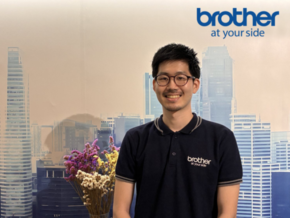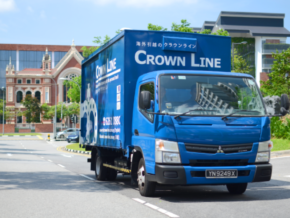Business Talk with Koichiro Onoe Yamaha, Music Philippines Inc. President
Advancing the Music Market in the Philippines’ 7,000 Islands with a Focus on “Depth”
In 2023, Yamaha founded the local subsidiary Yamaha Music Philippines Inc. to embark on serious market development. Leading the launch is President Koichiro Onoe, who considers himself a “pioneer leader” with rich overseas experience. We spoke with President Onoe about how the company aims to grow brand presence and build a sustainable business amid the complexities of culture, business customs, and logistics in the Philippine market.

Yamaha Music Philippines Inc President Koichiro Onoe
Philippine Primer:
What prompted the establishment of Yamaha Music Philippines?
Mr. Onoe:
The Philippines is a country where music is deeply rooted in daily life. Influenced first by the Spanish colonial era and later by American entertainment, there is a strong affinity for Western music. Furthermore, among ASEAN countries, it is unique in having English as an official language, where there are less restriction over music playing, making it an ideal environment for the musical instrument business.
Previously, for over 50 years, Yamaha entrusted the import and sale of its products to local distributors. However, by establishing a local subsidiary and directly conducting business closer to customers, we believed we could achieve significant growth by strengthening those connections.
In the Philippines, there are currently three “Yamaha Stores” exclusively carrying Yamaha products, each run by partners. But since standalone stores require substantial investment, we’re also putting effort into efficient deployment by setting up Yamaha corners in partner retailers. We believe it’s important to create many places where people think, “If I come here, I can experience Yamaha.”
Philippine Primer:
What is your focus in sales strategy?
Mr. Onoe:
Musical instruments are certainly not inexpensive. Unless people physically handle them, produce sound, and experience their value firsthand, true quality and worth won’t come across. Whether guitar or piano, the most emotional moment is when the first note sounds.
Yamaha is still a newcomer in the Philippine instrument market. Our first step is to increase the number of partners and expand distribution channels, while enhancing “depth”—not merely displaying products, but providing customers with opportunities and venues to experience Yamaha items suited to their individual needs, and extending the product lifecycle through increased access to maintenance. To connect with customers “broadly, deeply, and for the long term,” it’s crucial to develop many partners capable of promoting Yamaha’s appeal on the ground in our stead.
We offer a wide range of product categories, and it’s necessary to create optimal trial and distribution frameworks for each. One method won’t work for all products. Though it takes time, building carefully this way will give us strengths that are not easily replicated.
Philippine Primer:
How is music education in the Philippines?
Mr. Onoe:
In the Philippine music education, opportunities for instrumental performance are limited. Yamaha has the “School Project,” which supports the development of “new music classes” in public education, aiming to nurture children worldwide through music and instrumental activities. In partnership with the Davao Department of Education, we piloted recorder education in elementary schools last year.
In sound equipment, beyond providing products, we hold seminars to share practical knowledge with local users. Last year, we conducted those seminars in Davao and Cebu, which were greatly appreciated in those regions, where such opportunities are rare. Our aim is to share Yamaha’s sound-making know-how and expand the appreciation of music.
Philippine Primer:
Tell us about your operational structure.
Mr. Onoe:
Currently, we have four Japanese employees and 23 local staff. Naturally, with more local staff, most of our operations are carried out by them. While English fluency in the Philippines is a great advantage, accurately conveying intentions can be hindered by cultural differences, leading to misunderstandings and inefficiencies.
To understand cultural differences, Hofstede’s Cultural Dimensions Model is often referenced. It measures six axes—“power distance,” “individualism vs. collectivism,” “uncertainty avoidance,” “achievement orientation,” “long-/short-term orientation,” and “indulgence vs. restraint.” Japanese are globally high in uncertainty avoidance, preferring foresight, rules, and thorough preparation. In contrast, Filipinos score moderate to low in uncertainty avoidance, with strong collectivism and short-term orientation, displaying a Latin-like spirit—preparations may be delayed, but a last-minute surge of effort compensates. There are positives and negatives in each, but it’s something Japanese cannot imitate.
I believe we should discard the idea that Japanese are the standard and other countries are exceptions. Rather, Japanese may be the extreme, while Filipinos are actually closer to the global standard. Acknowledging cultural and value differences and blending their strengths is vital for organizational development.
Also, in talent development, understanding the “why” and context behind tasks is important. For example, when setting up equipment for an event, unless people understand the purpose—“to deliver great sound and move our audience”—tasks can become superficial and unsustainable.
Philippine Primer:
What are your expansion plans going forward?
Mr. Onoe:
I don’t believe in any magic formula that multiplies sales easily. Understanding and appreciating our products leads to repeat purchases and word-of-mouth, which expands the market. Our growth strategy is to steadily build a foundation and eventually form a strong organization no one can imitate. We’ve been established for two years—just like being at first station on a mountain climb.
I see myself as a “leader of advance troops” in the launch. Building culture takes time. “No magic. You have to take steady steps one by one.” Making today work well is the only way to build the future.
At the same time, I believe it’s important to blend Japanese and Philippine cultures. Together with our local staff, we want to build an organization and culture that can only exist here. That’s my intention.
About Koichiro Onoe
He spent his childhood in the UAE and his high school years in Houston, Texas, before graduating from Yokohama National University and joining Yamaha Corporation in 2001. After starting in electronic-precision sales and completing Spanish-language training, he was posted to Panama (overseeing Latin America) and Dubai (covering the Middle East, Africa, and CIS), later joining the internal audit team before assuming his current role in 2023. A fan of local “B-grade” gourmet food and mini 4WD racing, he jokes, “I have instruments at home, but everyone at work is so skilled—I can’t really say I play them.” His motto: “There’s no magic—proceed steadily.” He believes every situation has its background and that true change comes from building step by step upon that foundation.











